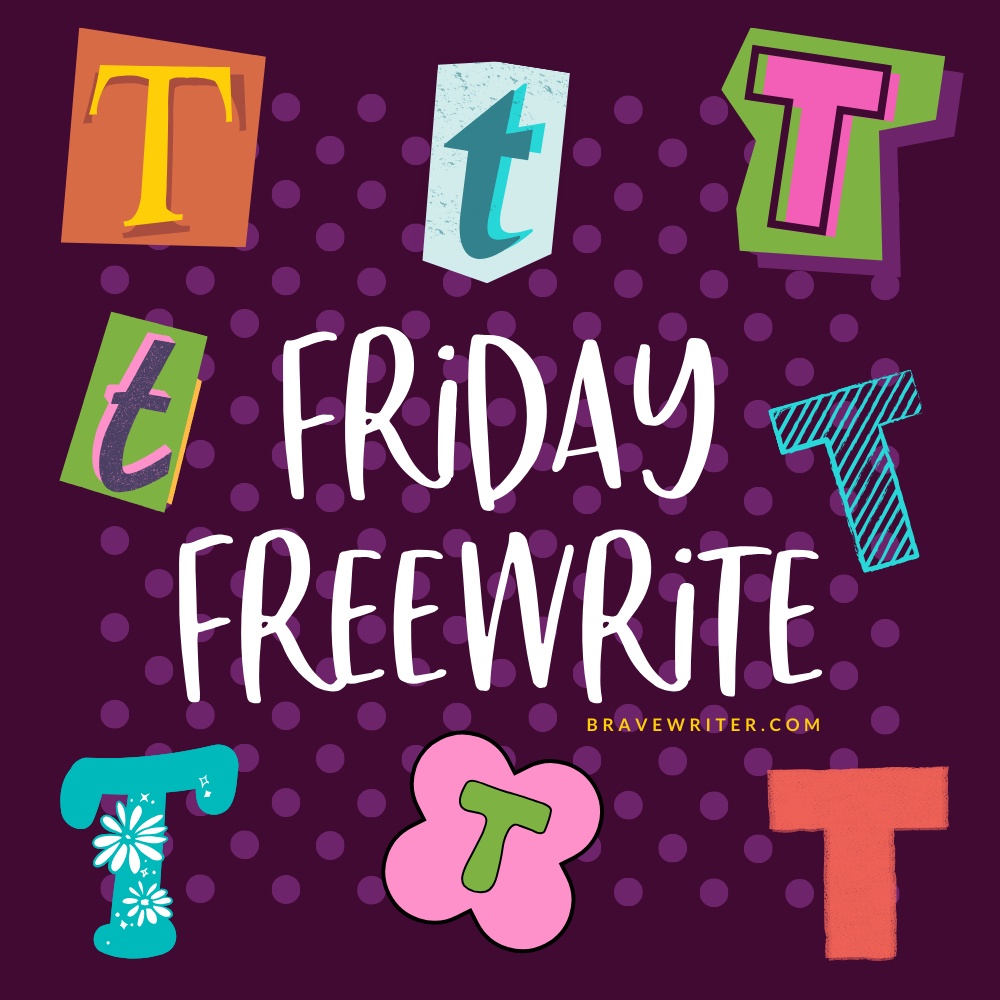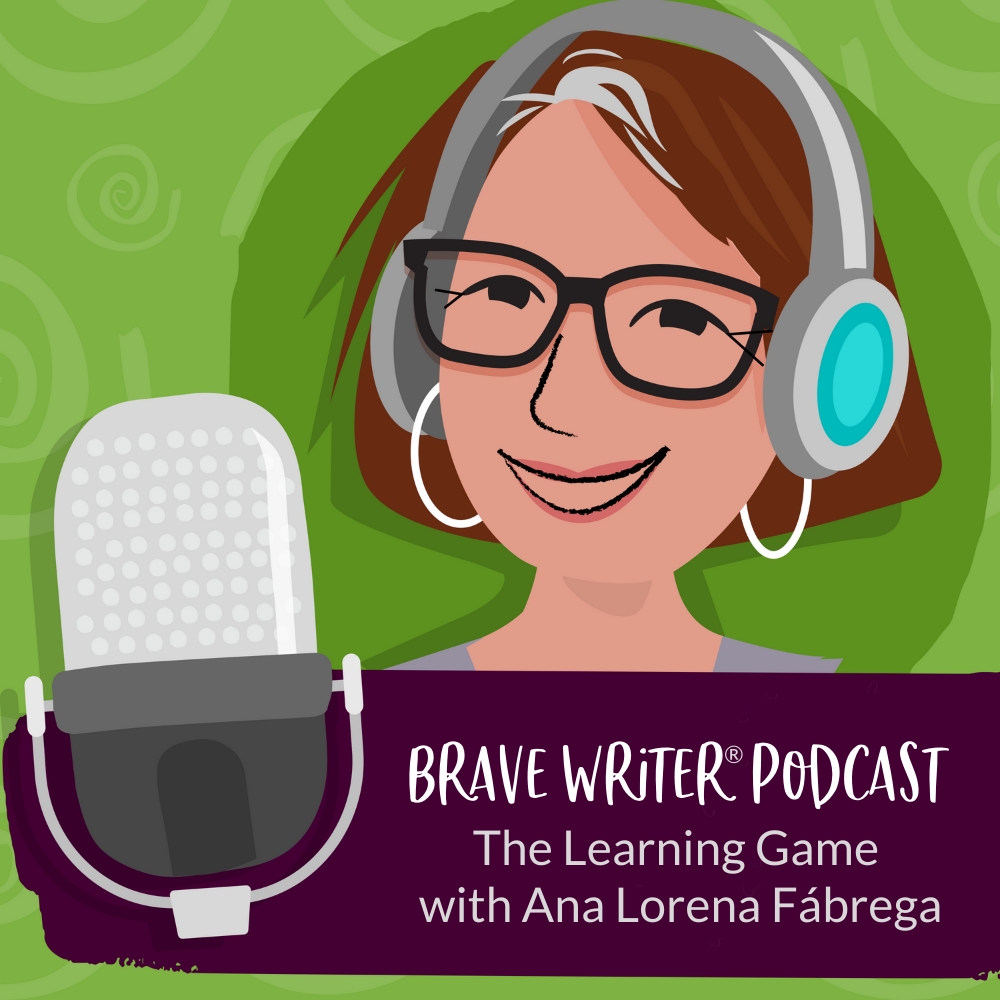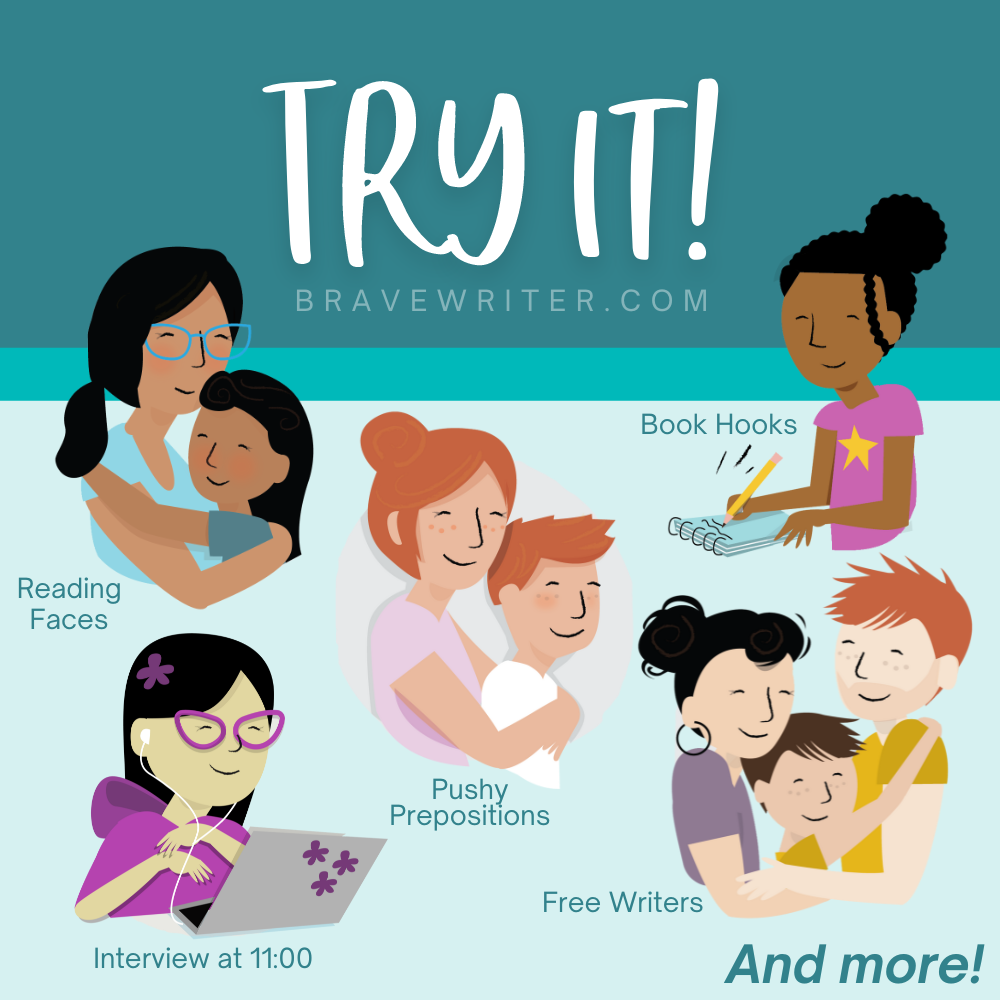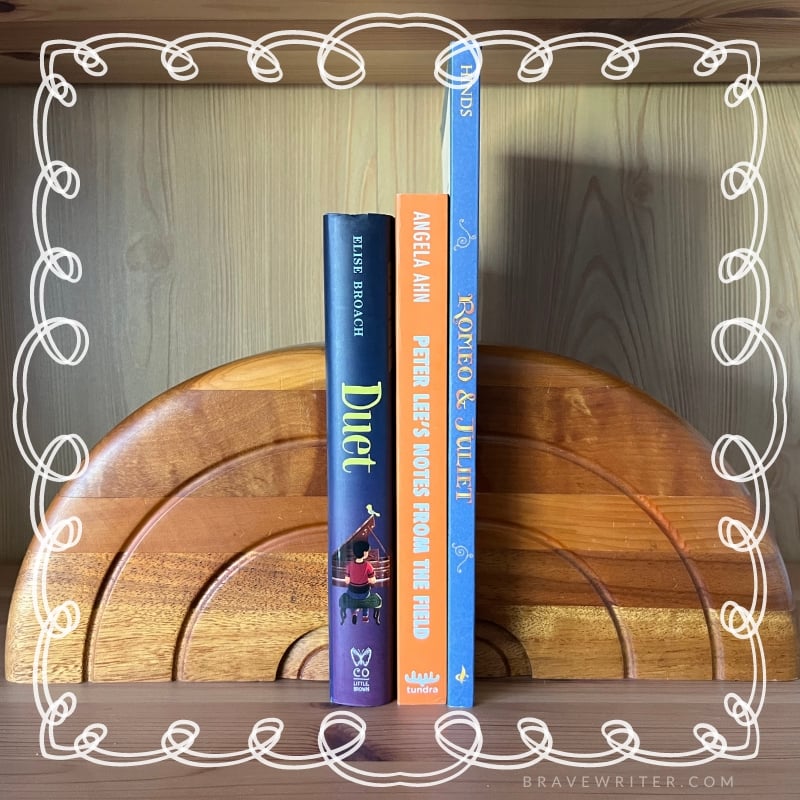
Write a story using as many of these “T” words as you can.
- Table
- Tiptoe
- Total
- Toast
- Terrific
- Timely
- Toss
- Trumpet
New to freewriting? Check out our online guide.

Write a story using as many of these “T” words as you can.
New to freewriting? Check out our online guide.
Tags: Writing prompts
Posted in Friday Freewrite | Comments Off on Friday Freewrite: Letter “T” Words

There’s a big difference between “the game of school” and “the learning game.” Ana Lorena Fábrega picked this up as a kid when she went to 10 different schools by the time she was 15. She learned it again as an educator herself.
Today Ana joins us on the Brave Writer podcast to discuss her book, The Learning Game: Teaching Kids to Think for Themselves, Embrace Challenge, and Love Learning.
In this episode, we talk about:
Applied Learning vs. Memorization
When Ana taught at a traditional school, every year she would have to re-study the material in order to teach her students, even though it was the same material that she had taught the year before. She realized that if she wasn’t retaining the information, her students weren’t either. That’s when Ana started to focus more of her lesson time on helping students apply concepts, rather than over-explaining the concepts and then expecting memorization.
“Pointsification” vs. Gamification
A lot of teachers use some kind of point system–if the class does a certain number of behaviors or achieves a certain academic milestone, they get a pizza party, or something like that. There’s nothing wrong with a good pizza party, but this kind of “pointsification” creates external motivation, which is powerful in the short term, but does nothing for long-term learning and understanding. On the flip side, using games to challenge students to grapple with concepts creates internal motivation and helps students really absorb what they have learned.
Testing Culture vs Curiosity
In today’s education system, standardized test scores reign supreme. Teachers, parents, and students stress year-round about test scores. That stress actually lowers the students’ ability to perform on tests. Even worse, the test-centered education design lowers students’ ability to learn. In her final year of teaching, Ana ignored test prep and instead cultivated her students’ innate curiosity. Ironically, that year her students excelled on their standardized tests, outperforming their peers.
Embracing Confusion
Confusion is part of problem-solving. A lot of times, intentionally or unintentionally, parents and teachers hide their confusion from their students. They want to seem like experts on every topic or in every situation. The problem is that this can lead to students thinking that when they experience confusion, they are doing something wrong. By modeling acceptance of confusion and patiently working through it, parents and teachers can reduce pressure on students and encourage them to take on challenges.
The bottom line of our discussion with Ana: Think like a videogame designer. Kids (and adults) don’t love video games because they are easy—they love them because they are challenging, hard to win, and packed with intrinsic motivation. Don’t be afraid to make your kids’ education the same way.
Connect with Julie
Connect with Melissa
Produced by NOVA Media
Posted in Podcasts | Comments Off on [Podcast #227] The Learning Game with Ana Lorena Fábrega

Sometimes, the best way to learn something is to TRY IT!
This collection of posts offers short activities you can do right away with your kids—with little to no prep!
Engage your kids in writing mechanics (grammar, punctuation, spelling) in a whole new way! The Brave Writer way!
Bookmark this page! Try It activities will be added as we share them.

Tags: Try It
Posted in Activities | Comments Off on Try It Activities: The Complete List

Some home educators believe (whether true or not) that kids in school are basically learning independently. School kids get themselves to and from class, jot down the homework assignment, complete the work often without assistance, and return that work to school.
Homeschool parents wish their children would get their work done without:
And yet: school kids are not independent learners. They are performing a set of tasks determined by the teacher, with due dates and clear instructions. School kids learn how to follow instructions and perform the assigned tasks on their own. I call this: “Doing schoolwork alone.”
The independent learner takes initiative to learn what is important to them. The independent learner finds resources to support learning: asks for help, conducts research, tries and fails, complains to an empathetic listener, suggests alternative methods for learning, and may want companionship just for the support it offers.
A child who can “do schoolwork alone” is not necessarily learning independently. Rather that child is good at cooperation or obedience without help.
Independent learning means caring about what you are learning and then:
Being good at “doing schoolwork alone” is especially painful for homeschooled kids. They don’t even get to go to school for a break from all that alone schoolwork. Independent learning can be a joyful experience of companionship and adventure!
So remember: there’s a difference between independent learning and “doing schoolwork by yourself.” Independent learning means taking the initiative to teach yourself what you want to learn but does not mean you always have to learn alone.
Posted in Homeschool Advice | Comments Off on Alone or Independent?

March’s Dart, Arrow, and Boomerang shine light on the power of deep relationships. While exploring writing, mechanics, and literary devices, lean into the big, juicy conversations these stories will inspire!
And this month’s Quill is Pets, and we think you’ll agree it’s the purr-fect way to introduce new concepts to your kids. We’ll investigate wordplay and onomatopoeia, we’ll connect with nature, and play with vivid vocabulary!
Pets
Go off-leash with the March issue of the Quill!
In the Brave Writer Book Shop, you’ll find books about pets that we adore! These are not required (you can use any books about these topics that you have in your stacks or discover at your library), but we find it’s helpful to have a list to get you started.
In this Quill, we’ll:
Duet by Elise Broach
Embark on an adventure with Mirabelle, a young goldfinch, and Michael an eleven-year-old musical prodigy, as they work to solve a real-life musical mystery!
The literary device focuses on Lyrical Language. Join us for a closer look!
Inside this Dart we’ll also:
Peter Lee’s Notes from the Field by Angela Ahn
Eleven-year-old Peter Lee has one dream—to become a paleontologist. But that dream is put on hold when unforeseen circumstances turn his life upside down! Thankfully, Peter’s scientific savvy can help!
The literary device focuses on Journal Writing. Join us for a closer look!
In this Arrow we’ll also:
Romeo & Juliet (graphic novel) by Gareth Hinds
Gareth Hinds’s graphic adaptation of the Bard’s romantic tragedy will delight the most loyal of Shakespeare fans, and it will appeal to readers new to his work as well!
In this Boomerang, we’ll:
For ages 15-18, check out the Slingshot.
Posted in Arrow, Boomerang, BW products, Language Arts | Comments Off on Mechanics & Literature: March 2024

I’m a homeschooling alum -17 years, five kids. Now I run Brave Writer, the online writing and language arts program for families. More >>
IMPORTANT: Please read our Privacy Policy.


